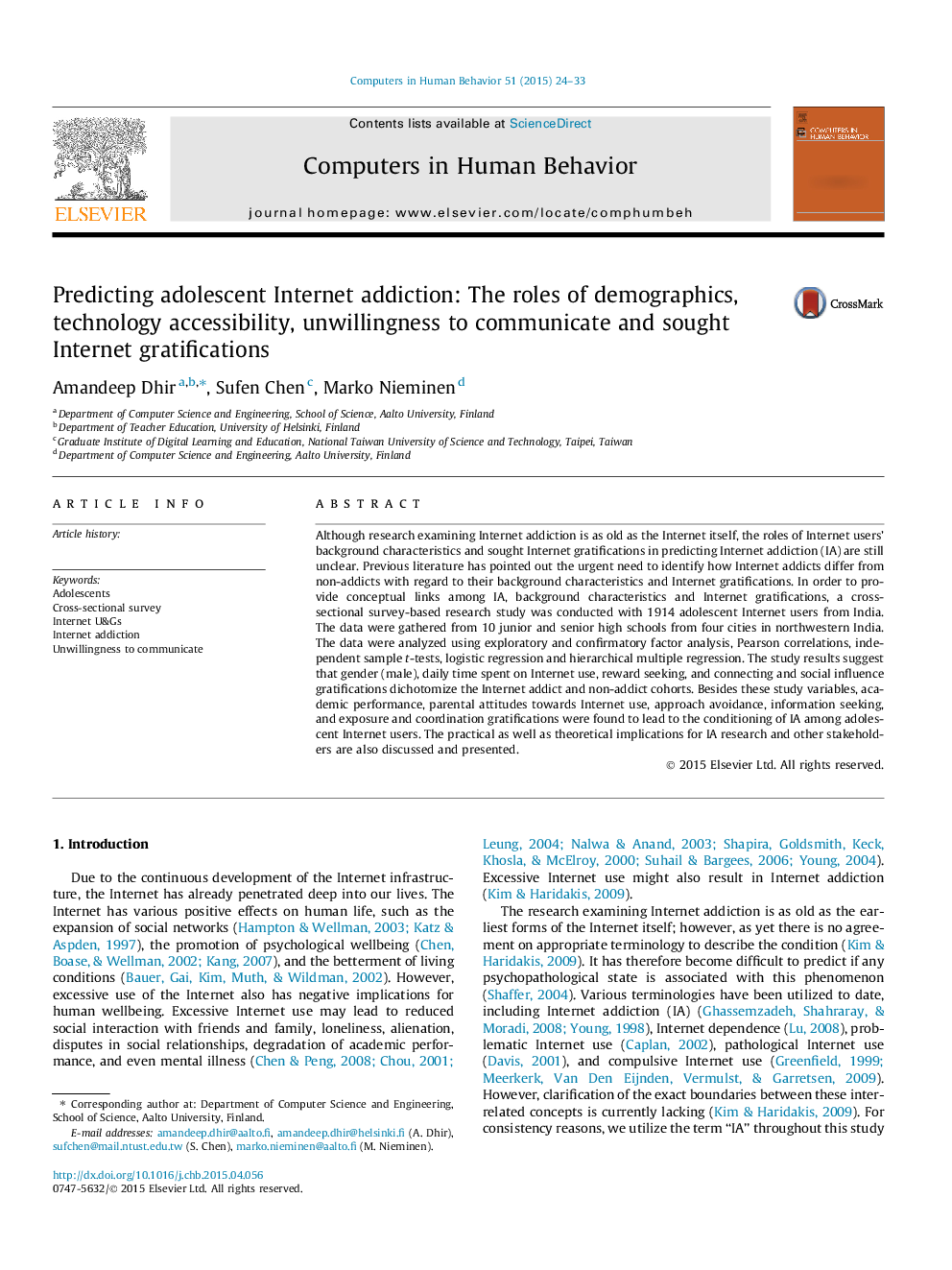| Article ID | Journal | Published Year | Pages | File Type |
|---|---|---|---|---|
| 10312536 | Computers in Human Behavior | 2015 | 10 Pages |
Abstract
Although research examining Internet addiction is as old as the Internet itself, the roles of Internet users' background characteristics and sought Internet gratifications in predicting Internet addiction (IA) are still unclear. Previous literature has pointed out the urgent need to identify how Internet addicts differ from non-addicts with regard to their background characteristics and Internet gratifications. In order to provide conceptual links among IA, background characteristics and Internet gratifications, a cross-sectional survey-based research study was conducted with 1914 adolescent Internet users from India. The data were gathered from 10 junior and senior high schools from four cities in northwestern India. The data were analyzed using exploratory and confirmatory factor analysis, Pearson correlations, independent sample t-tests, logistic regression and hierarchical multiple regression. The study results suggest that gender (male), daily time spent on Internet use, reward seeking, and connecting and social influence gratifications dichotomize the Internet addict and non-addict cohorts. Besides these study variables, academic performance, parental attitudes towards Internet use, approach avoidance, information seeking, and exposure and coordination gratifications were found to lead to the conditioning of IA among adolescent Internet users. The practical as well as theoretical implications for IA research and other stakeholders are also discussed and presented.
Related Topics
Physical Sciences and Engineering
Computer Science
Computer Science Applications
Authors
Amandeep Dhir, Sufen Chen, Marko Nieminen,
